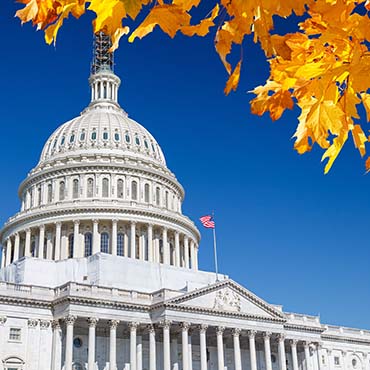$9 billion price tag likely dooms MGT Act

The Congressional Budget Office estimates that implementation of the Modernizing Government Technology Act will cost $9 billion over five years.

The last-minute push to get an IT reform bill through Congress appears to have hit a wall.
Supporters from Rep. Will Hurd (R-Texas) to federal CIO Tony Scott have been urging the Senate to move on the Modernizing Government Technology Act before the close of the 114th Congress. The bill's $9 billion official price tag, however, seems likely to derail efforts at passage in the waning days of the current legislative session.
The MGT Act, which passed the House of Representatives in September, authorizes agencies to reprogram funds, with the approval of congressional appropriators, to modernize legacy IT systems. The bill also authorizes a governmentwide revolving fund for high-priority modernization efforts, with agencies paying back advances on IT upgrades through their cost savings. That latter part of the bill was originally floated by the Obama administration as a $3 billion fund as part of a larger cybersecurity package.
The MGT Act was billed as a compromise package that omitted specific funding requests, leaving those to appropriators in the House and Senate. But there's still a lot of money at stake. According to the Dec. 1 cost estimate from the Congressional Budget Office, the bill will cost $9 billion to implement from 2017 to 2021. That price tag makes it unlikely the Senate will be able to act on a planned companion measure to the House version before lawmakers leave town for their holiday recess.
Complicating matters is the compressed legislative schedule, with lawmakers required to pass a continuing resolution to keep the federal government open when current funding expires Dec. 9.
The CBO estimate includes spending from 2017 to 2019 of reprogrammed agency funds that would otherwise have not been spent as well as funds for the planned governmentwide fund. Overall, CBO estimates that Congress would have to authorize about $12 billion to support the measure, with $9 billion actually spent by 2021.
"The legislation isn't going to get done this year because we ran out of time, but the need to modernize IT infrastructure doesn't go away," said Mike Hettinger, a former senior Capitol Hill staffer currently a legislative strategist and lobbyist who has been working on IT modernization. Hettinger said that he hoped the incoming Trump administration would look favorably on the bill, which has the support of industry and of lawmakers on both sides of the aisle.
"If we're going to make a big push about infrastructure, I'd hope the administration takes a look at government IT infrastructure," Hettinger said.
"The scoring may present a roadblock," said Alan Chvotkin executive vice president and counsel of the Professional Services Council, who is still holding out hope for passage. He noted that in the scoring, "CBO cannot and do not speculate on potential savings" generated by a piece of legislation. Chvotkin said he hoped "the members will recognize the whole reason behind the bill is to achieve savings."
Trey Hodgkins, senior vice president for public sector at IT Alliance for Public Sector, a division of tech group ITI, noted that the legislative calendar was working against passage of the MGT Act. "Despite the strong bipartisan support, the waning days in the legislative calendar made this a heavier lift to begin with. But we’re encouraged to hear lawmakers say they share our priority to take a federal IT modernization bill back up again in the new Congress."
The House-passed MGT Act was a compromise that balanced an Obama administration proposal for a governmentwide fund, with a bipartisan bill that originated in the Senate early in 2016 supporting cloud adoption using agency-based funds. It's not clear whether under a Trump administration, there will be any appetite for the governmentwide fund. Chvotkin thinks it makes sense to keep it.
"Politically it could be a problem. Substantively, it should not be," he said. The governmentwide fund is necessary to support cross-cutting projects that help the whole federal enterprise, even if they are situated inside one agency. He cited efforts at the Office of Personnel Management to improve systems used in security clearance investigations. "You need some flexibility to do these kind of activities on a governmentwide basis," he said.
This article was updated Dec. 5.
NEXT STORY: Apple Is Using Drones to Make its Maps Better



